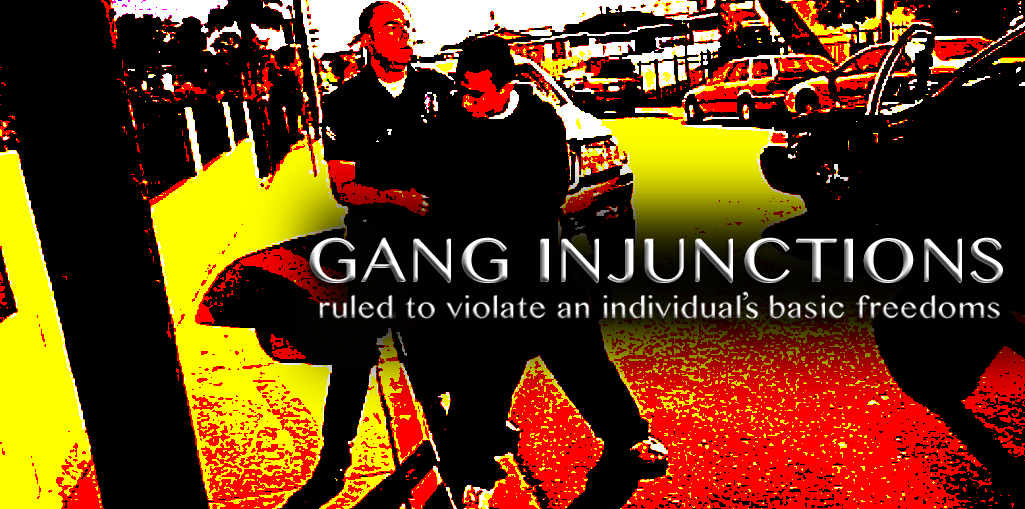 Tally another victory for civil liberties and constitutional rights. On Tuesday November 5, 2014, the 9th Circuit Court of Appeals ruled that a gang injunction in place in Orange County was overly broad and violated an individual’s basic freedoms. An injunction is an order by a court for someone to do something or refrain from doing something. A gang injunction is a new and dangerous twist on this traditional court order that is being used by District Attorney’s offices throughout the US. A gang injunction is a court order that attempts to restrain members of known gangs from associating with each other in public or representing their gang. As of 2010 there were 150 active gang injunctions in California alone.
Tally another victory for civil liberties and constitutional rights. On Tuesday November 5, 2014, the 9th Circuit Court of Appeals ruled that a gang injunction in place in Orange County was overly broad and violated an individual’s basic freedoms. An injunction is an order by a court for someone to do something or refrain from doing something. A gang injunction is a new and dangerous twist on this traditional court order that is being used by District Attorney’s offices throughout the US. A gang injunction is a court order that attempts to restrain members of known gangs from associating with each other in public or representing their gang. As of 2010 there were 150 active gang injunctions in California alone.
But wait, what’s the problem with telling gang members that they can’t hang out with each other and wear gang attire? Why wouldn’t we want to do that? Well, the problem is gang injunctions typically draw in a swath of law abiding citizens in an act of profiling and enforcement practices that resemble something closer to a police state than a democracy. For instance, the gang injunction that came before the 9th Circuit restricted what clothes could be worn within the “safety zone”. It limited people’s 1st amendment right to publicly associate with whomever they choose, and even imposed a mandatory curfew. The particulars of such a gang injunction seem better fitted for martial law than a free republic.
For instance, children of a community activist were served STEP (Street Terrorism Enforcement and Prevention) notices for merely being in a car with a suspected member who might have associated at one time or another with an associate of a gang. Her children were even finger printed, all at a routine traffic stop. Stories like these led the 9th Circuit to find that “the injunctions provisions were so sweeping that enforcement of them constituted a heavy burden on an individual’s basic freedoms”
Well why don’t non gang members just prove to Law Enforcement that they’re clean? What’s so hard about that? Well, for one thing, the way a gang injunction is obtained makes it very difficult to avoid being ensnared by it. The ACLU of Southern California describes just how scary the process of obtaining a gang injunction really is: “It’s common practice in gang injunction cases for prosecutors to name only a gang as a defendant, obtain an injunction by default when no one shows up on behalf of the gang to contest the case and then to apply the injunction to anyone police or prosecutors think may be a gang member, without court approval or a chance for the supposed gang member to be heard.” Without you ever realizing it you may become a “gang member” just because of where you live, who you talk to, or what you wear. That’s why gang injunctions are a dangerous weapon, and that’s why the 9th Circuit made the right call.
 Orange County Criminal Defense Lawyer Blog
Orange County Criminal Defense Lawyer Blog

